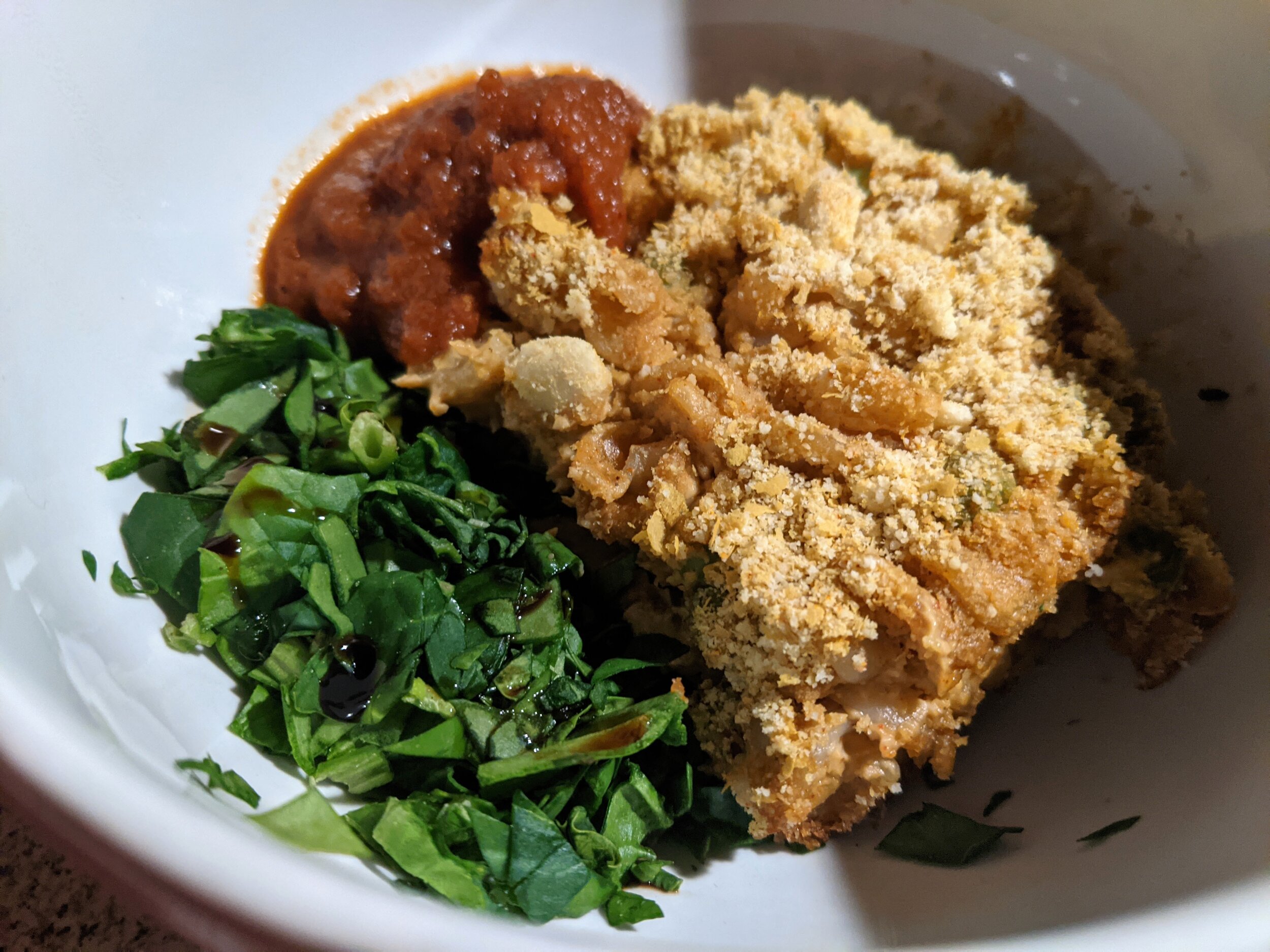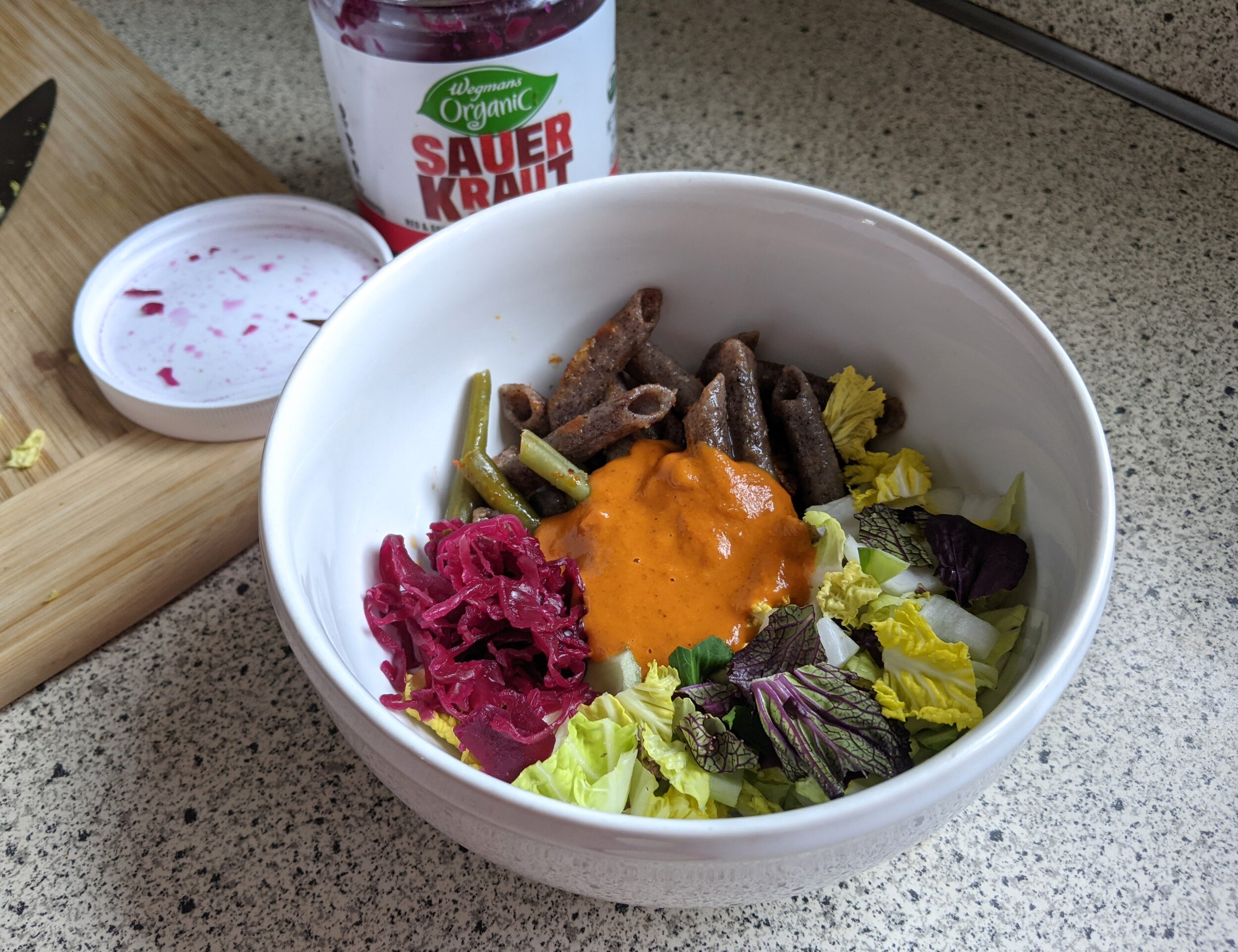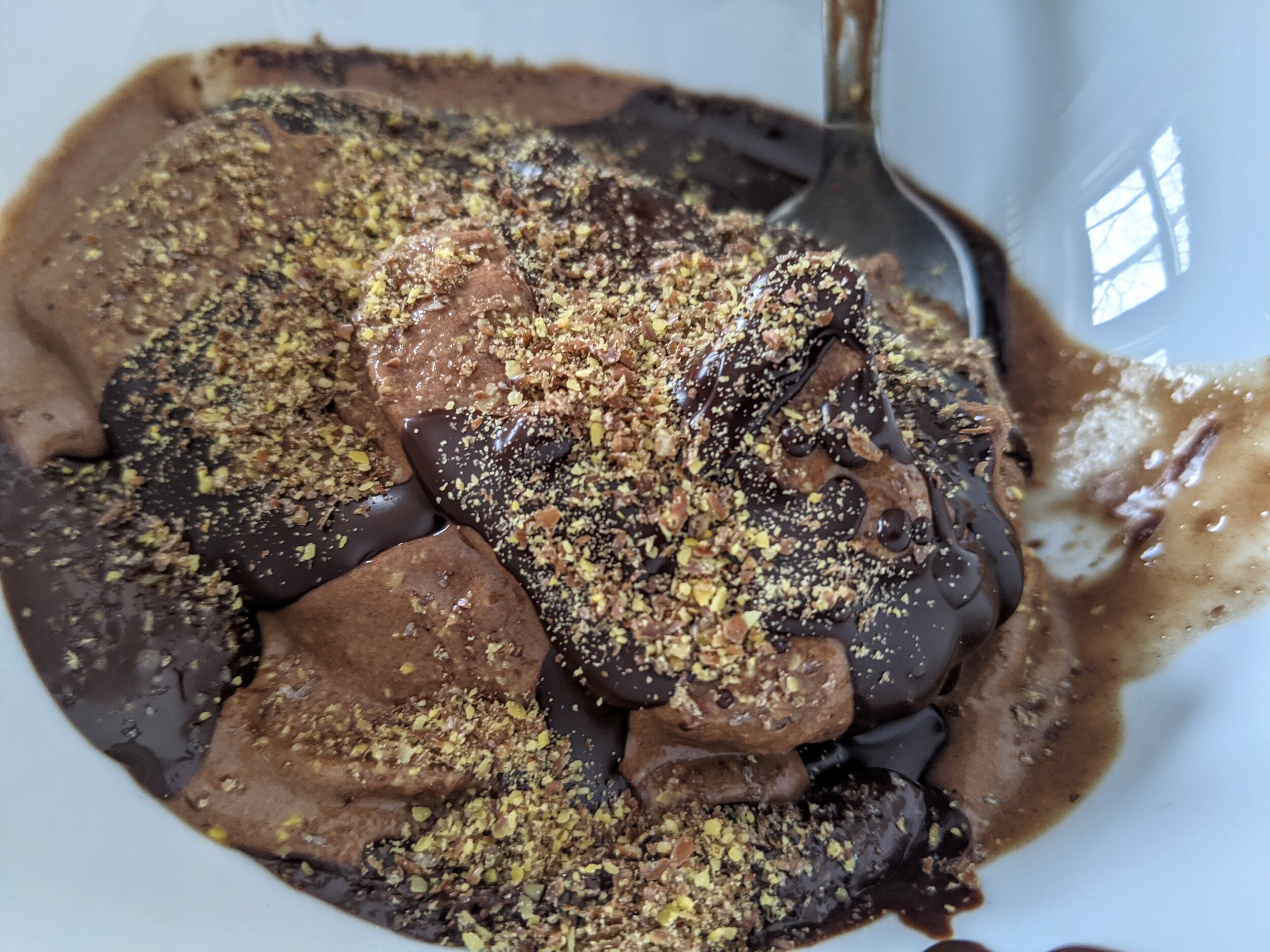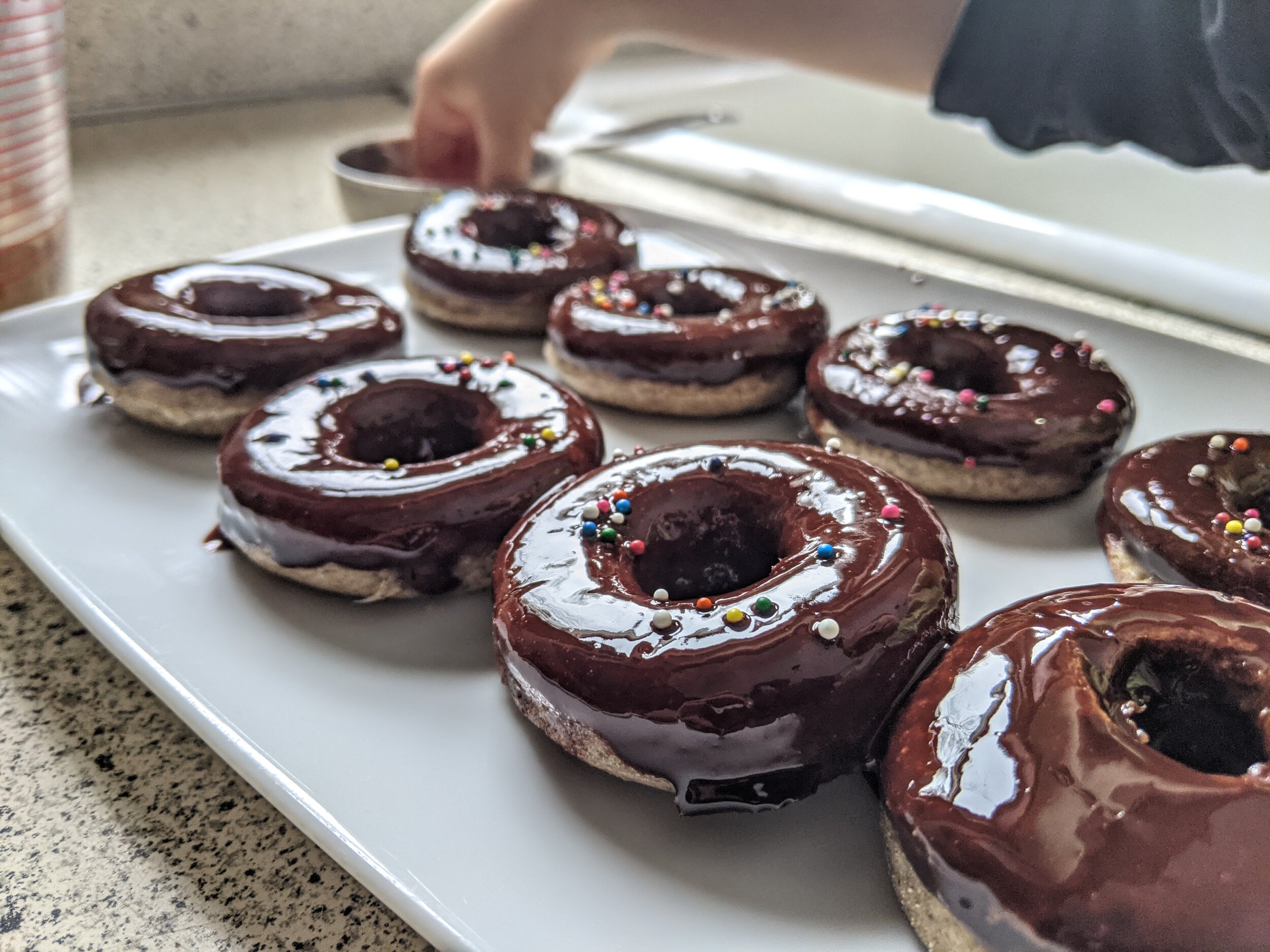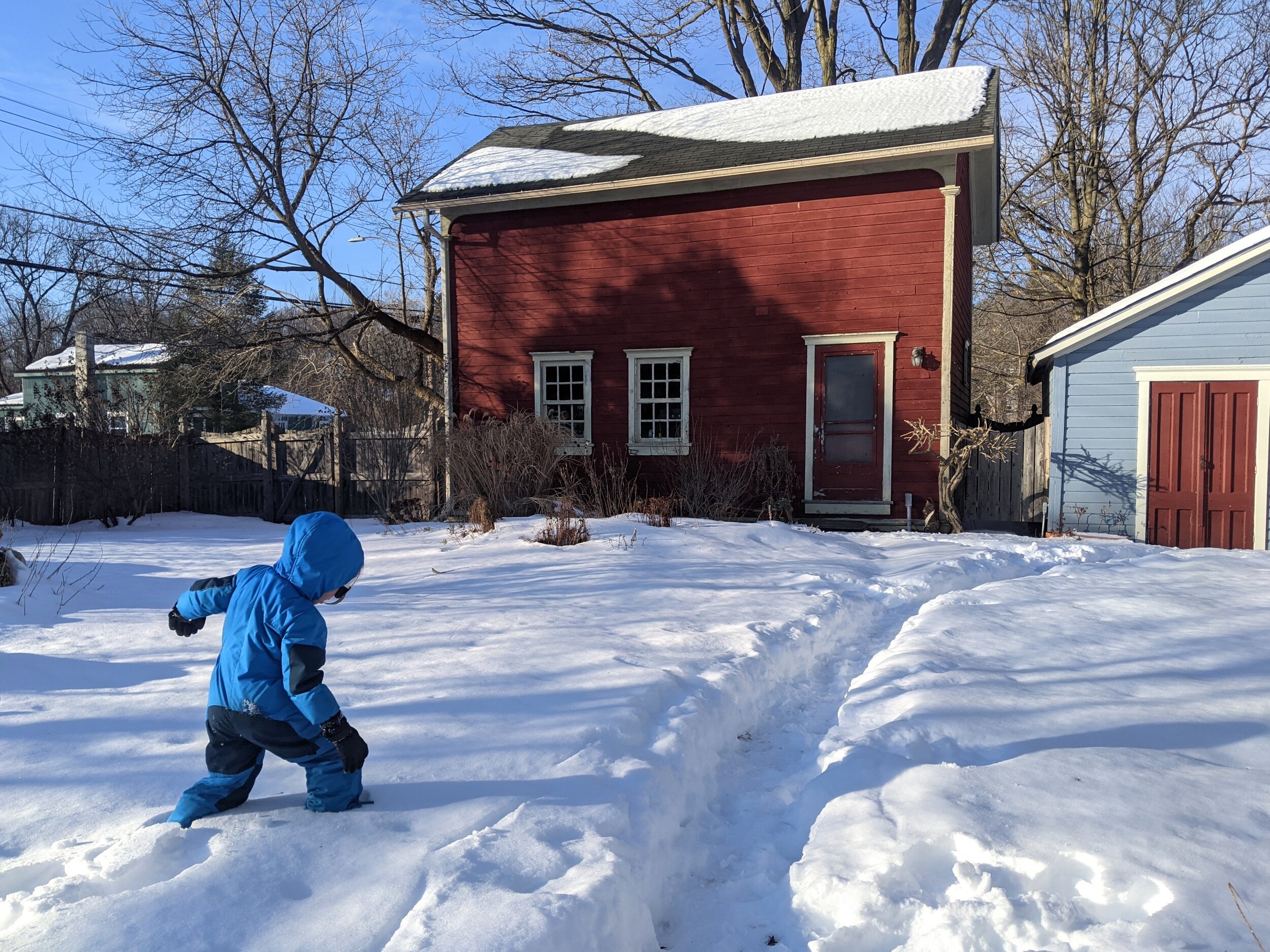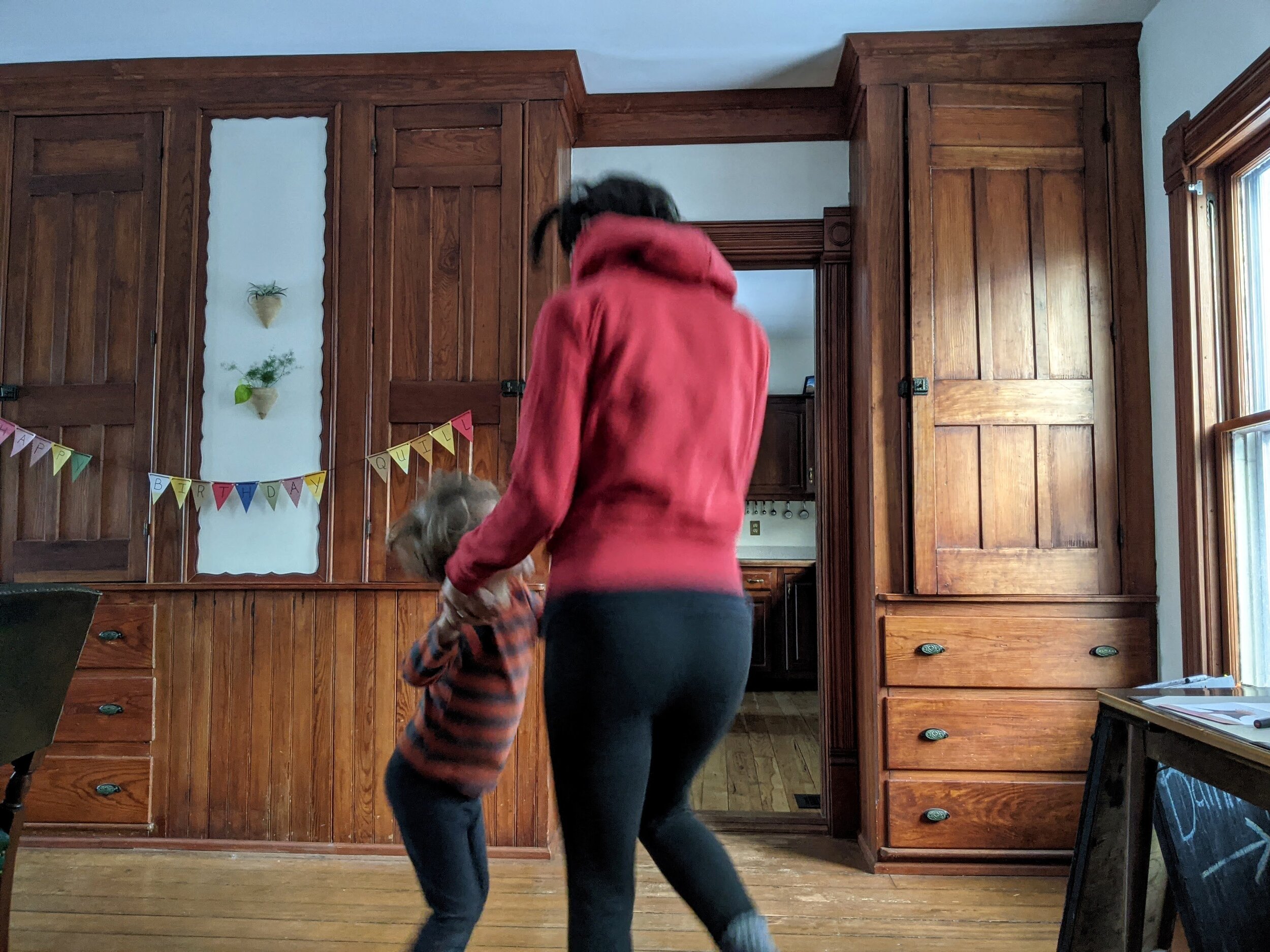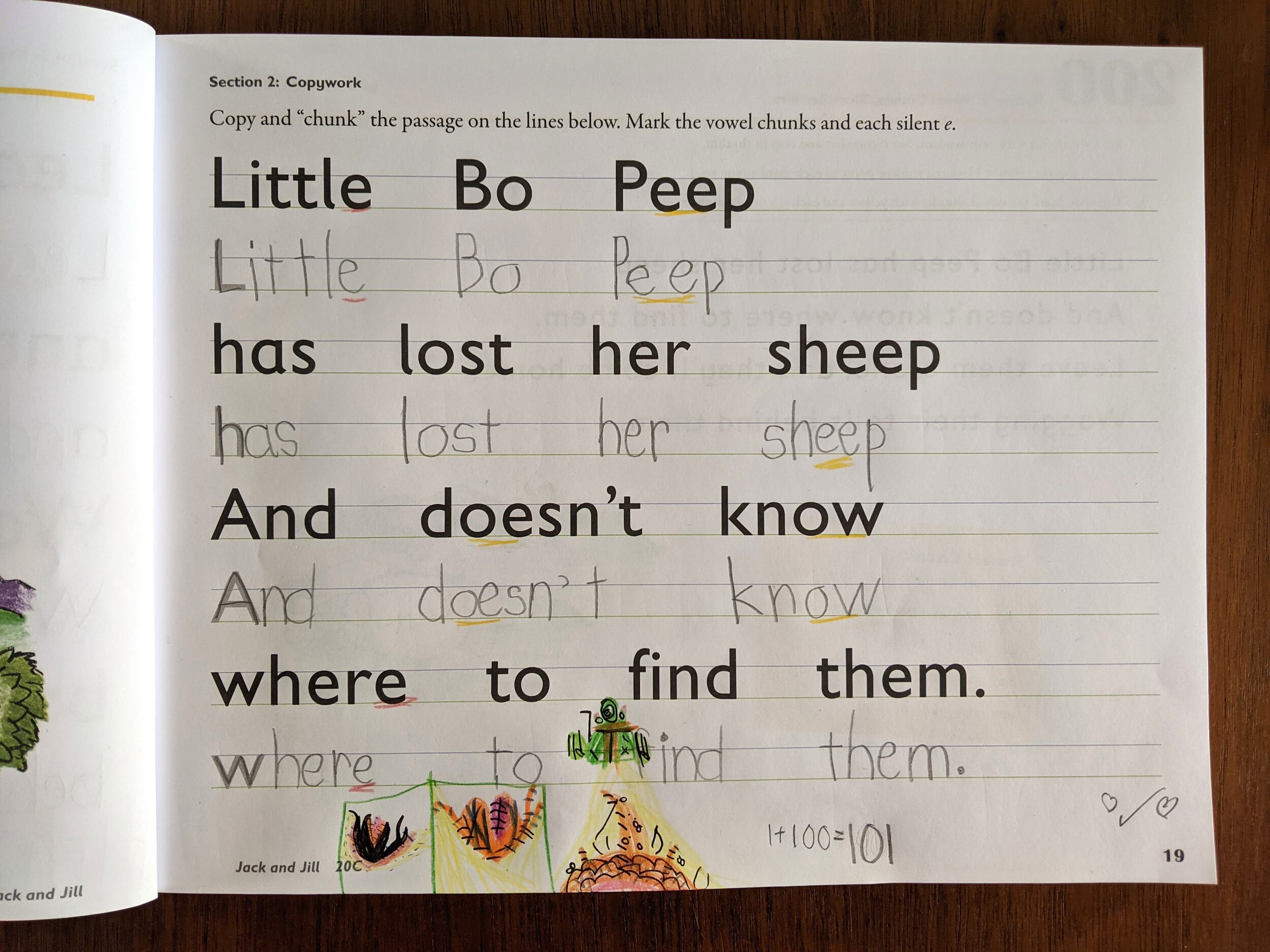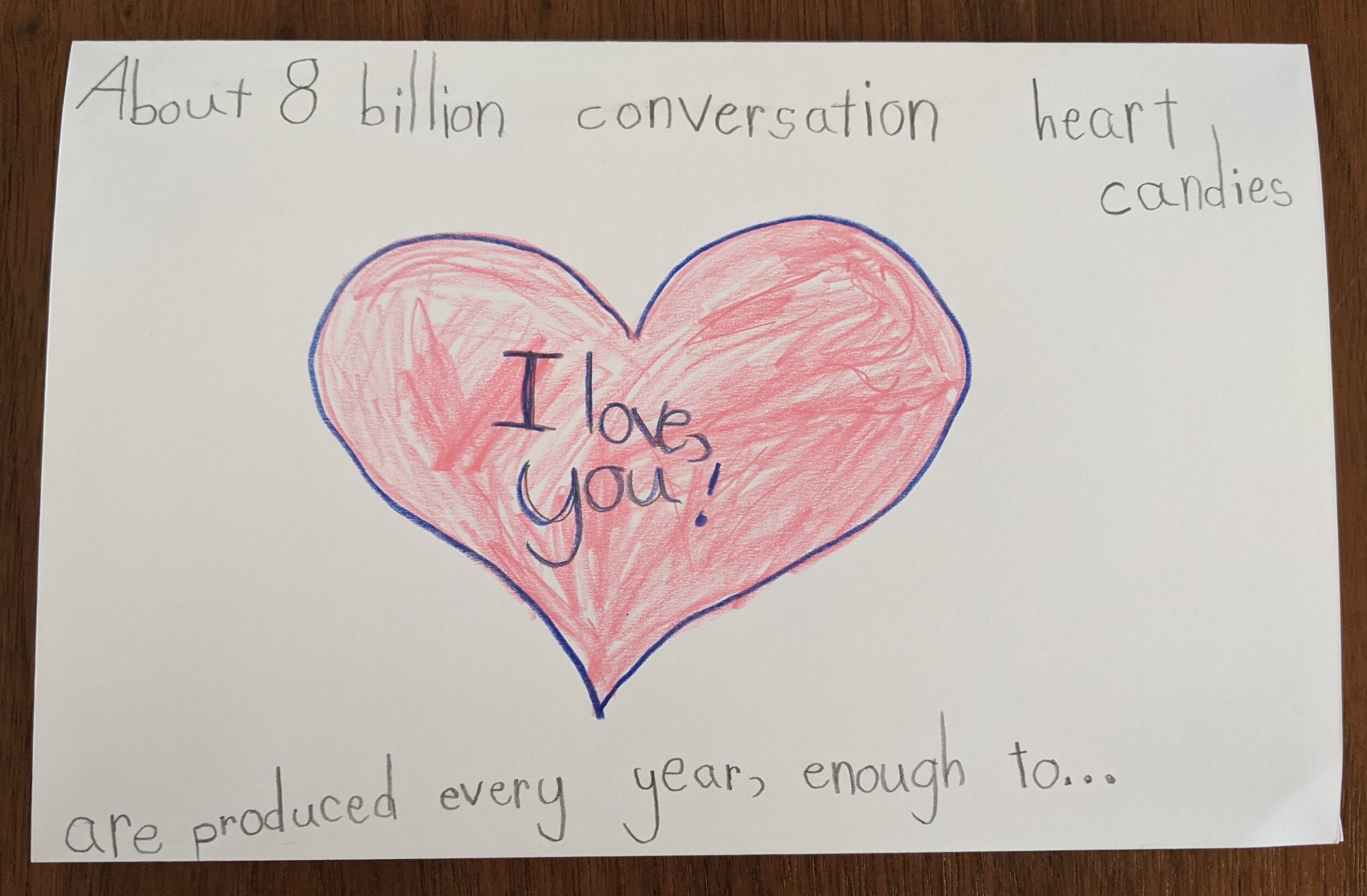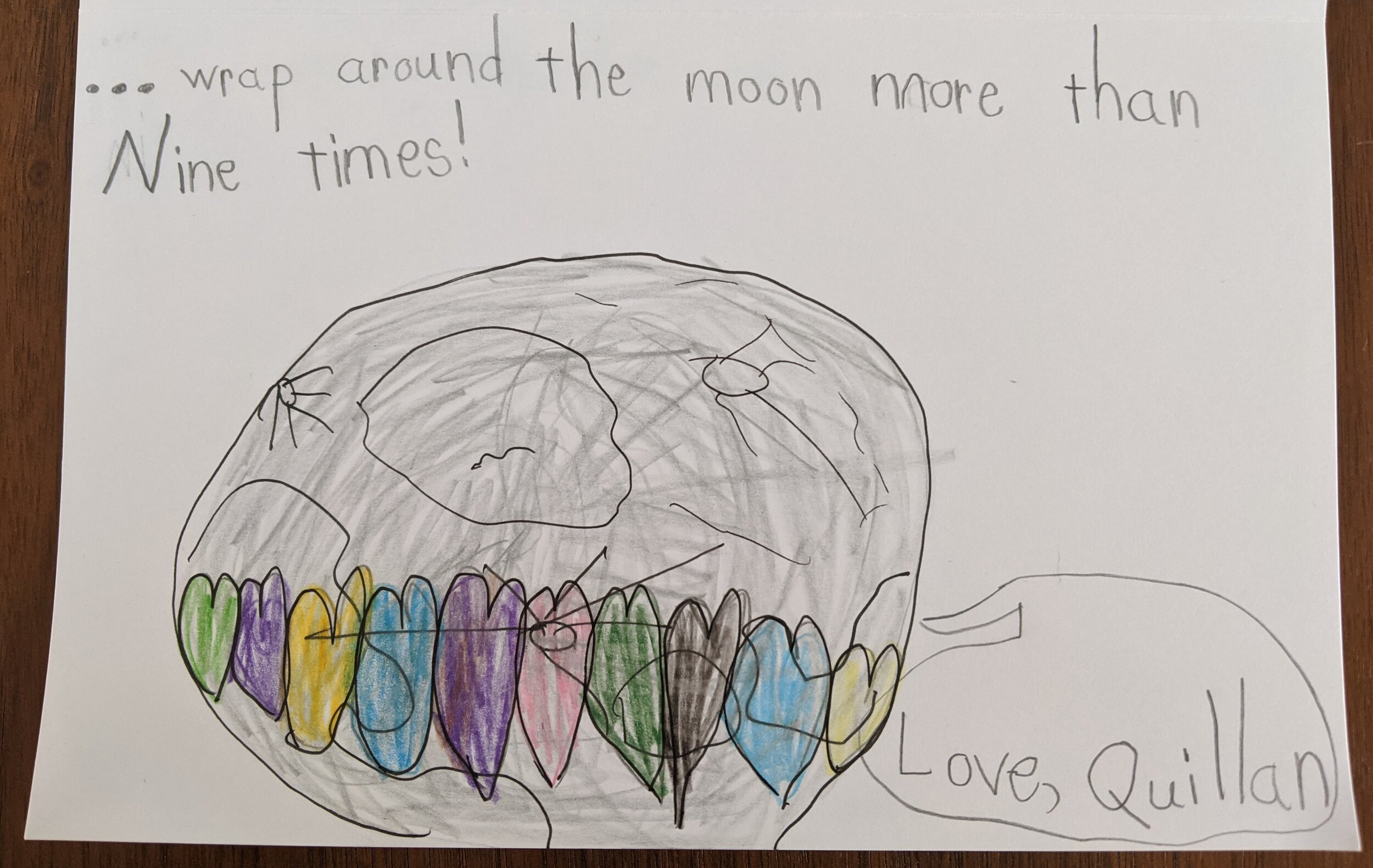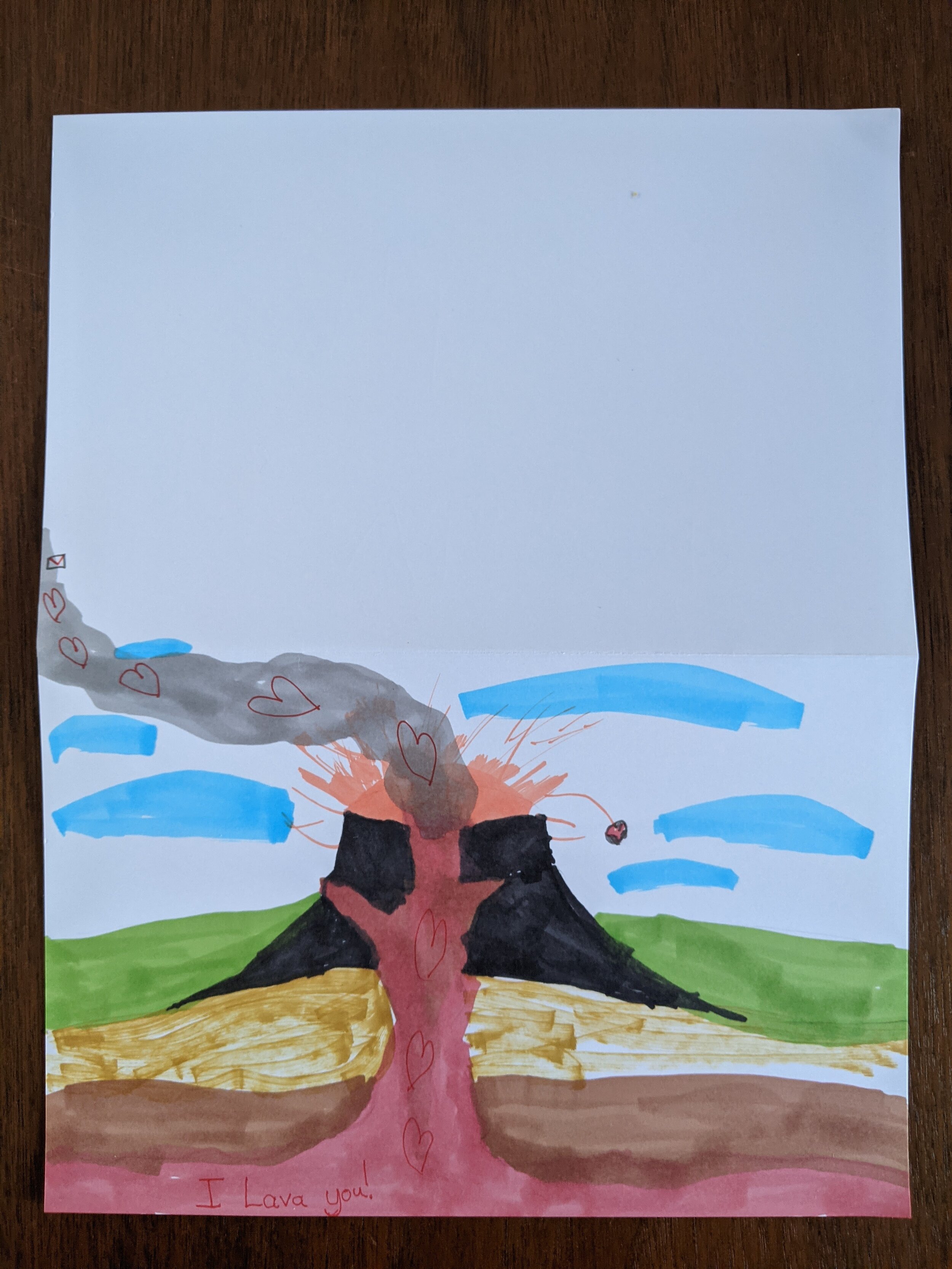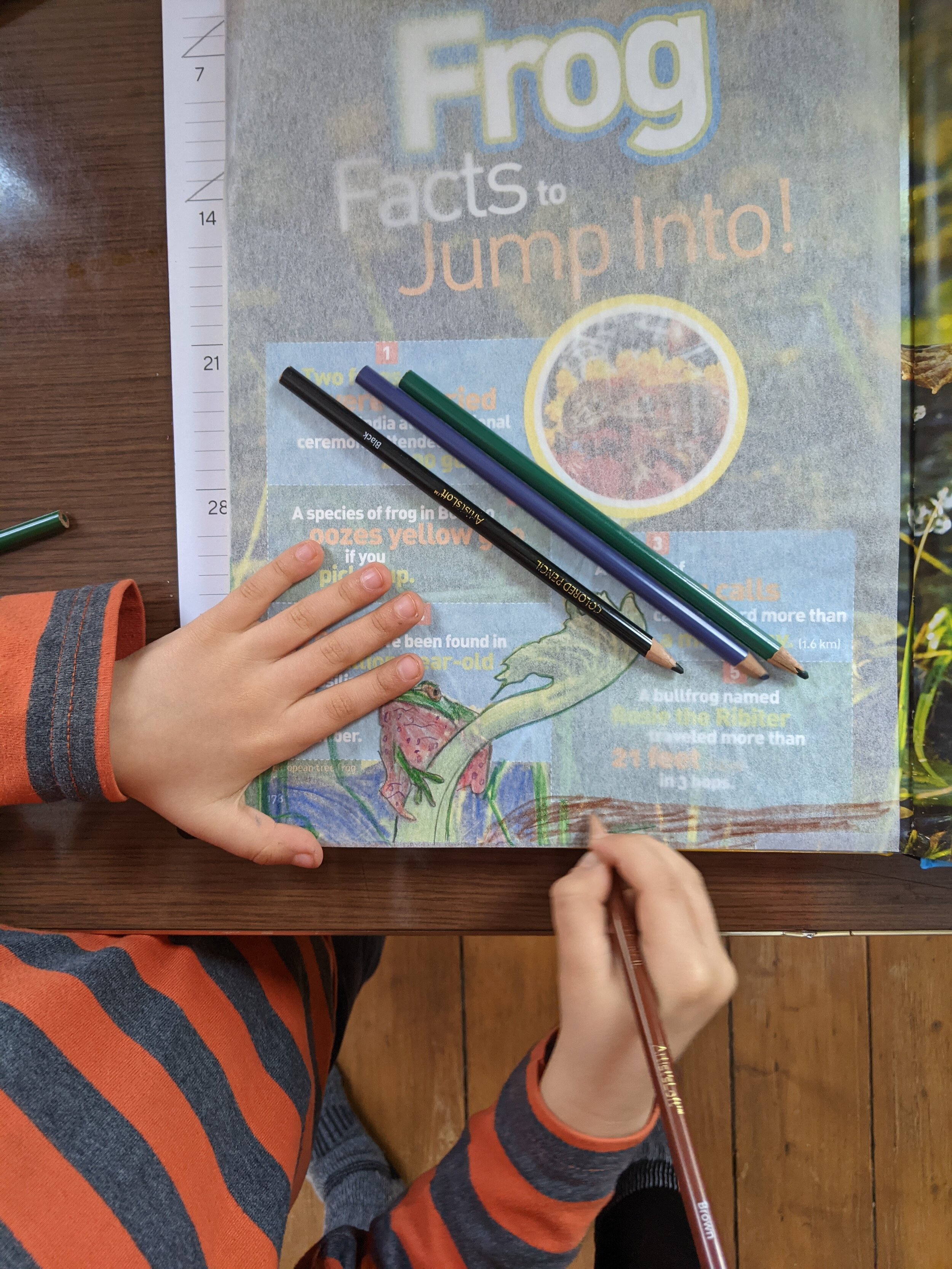Microbiome Fuel, Love-Light, & Sarlaccs
There are a lot of things in this world that we cannot control and may give us grief ( like a global pandemic going-on-a-year, American Politics, Inequality, Climate Change & Environmental Tipping Points, Animal Cruelty), but we can control and change how *we* interact with the world around us, and that impact can be big enough to save the environment for ourselves and all the souls and species that come after us.
Over here, we started shifting plant-based for compassionate, healthful, and environmental reasons (<—even the United Nations is urging us all to transition as PB as possible because it can lower our environmental impact up to 70%). We started by swapping out ingredients with the myriad/many/multitudes! of current plant-based options found in grocery stores across the land (<—there is a plant-based alternative for just about everything now), then we started incorporating more “Whole-foods” (avoiding refined sugars/flours, using less —or no oil-- and instead eating foods in their whole form: beans, lentils, whole grains, whole fruits/veg, etc) into our meals, and started to feel better than ever… while also cleaving our environmental footprint.
From the souls around you to the wee microbes making your microbiome hum, you have the power to pivot toward light or destruction. It starts with small steps. And if this past Junkfood Hobbit who sang songs about bacon/cheese/chicken wings and ate candy all the livelong-day can shift 100% Plant-Based: anyone can.
Continue for: how what you feed your microbiome (those millions of microbes covering the lining from your mouth to your anus <—there’s more of them in you than your own DNA) affects your whole system, what we’re eating this week to bolster our microbiome, the love notes Q was sending out this week (<—the kind of stuff we never used to do with our time on our old Standard American Diet), and at least 6 Sarlaccs. :-)
Live Kindly, Feast Kindly, Grow Forward.
There's an errant hemp in the list --really do have 2 other forms-- but forgot coffee, coriander, and to add the “brassica blend” balance to the green column, so huzzah 😅.
The best nutritionally-focused docs recommend that you get at least 30 different plants into you within the week. Why? The more plants you eat, the more your microbiome is bettered because that helpful little forest of microbes health is dependent on the fiber (<—only found in plants) of your food.
What do I mean by “bettered”? Decreased risk of cancer, decreased risk of cardiovascular disease (<—Number one cause of early death, and we could be preventing that) , better mental health, and a more robust immune system.
And here’s a link to many other essays I wrote about the microbiome, but do yourself a favor and set aside a moment to listen to any of the many doctor podcasts out there going deep into this mind-blowing/body-bettering subject.
Or, here’s some language from Harvard:
Picture a bustling city on a weekday morning, the sidewalks flooded with people rushing to get to work or to appointments. Now imagine this at a microscopic level and you have an idea of what the microbiome looks like inside our bodies, consisting of trillions of microorganisms (also called microbiota or microbes) of thousands of different species. [1] These include not only bacteria but fungi, parasites, and viruses. In a healthy person, these “bugs” coexist peacefully, with the largest numbers found in the small and large intestines but also throughout the body. The microbiome is even labeled a supporting organ because it plays so many key roles in promoting the smooth daily operations of the human body.
How microbiota benefit the bodyMicrobiota stimulate the immune system, break down potentially toxic food compounds, and synthesize certain vitamins and amino acids, [2] including the B vitamins and vitamin K. For example, the key enzymes needed to form vitamin B12 are only found in bacteria, not in plants and animals. [3]
Sugars like table sugar and lactose (milk sugar) are quickly absorbed in the upper part of the small intestine, but more complex carbohydrates like starches and fibers are not as easily digested and may travel lower to the large intestine. There, the microbiota help to break down these compounds with their digestive enzymes. The fermentation of indigestible fibers causes the production of short chain fatty acids (SCFA) that can be used by the body as a nutrient source but also play an important role in muscle function and possibly the prevention of chronic diseases, including certain cancers and bowel disorders. Clinical studies have shown that SCFA may be useful in the treatment of ulcerative colitis, Crohn’s disease, and antibiotic-associated diarrhea. [2]
Can diet affect one’s microbiota?In addition to family genes, environment, and medication use, diet plays a large role in determining what kinds of microbiota live in the colon. [2] All of these factors create a unique microbiome from person to person. A high-fiber diet in particular affects the type and amount of microbiota in the intestines. Dietary fiber can only be broken down and fermented by enzymes from microbiota living in the colon. Short chain fatty acids (SCFA) are released as a result of fermentation. This lowers the pH of the colon, which in turn determines the type of microbiota present that would survive in this acidic environment. The lower pH limits the growth of some harmful bacteria like Clostridium difficile. Growing research on SCFA explores their wide-ranging effects on health, including stimulating immune cell activity and maintaining normal blood levels of glucose and cholesterol.
Foods that support increased levels of SCFA are indigestible carbohydrates and fibers such as inulin, resistant starches, gums, pectins, and fructooligosaccharides. These fibers are sometimes called prebiotics because they feed our beneficial microbiota. Although there are supplements containing prebiotic fibers, there are many healthful foods naturally containing prebiotics. The highest amounts are found in raw versions of the following: garlic, onions, leeks, asparagus, Jerusalem artichokes, dandelion greens, bananas, and seaweed. In general, fruits, vegetables, beans, and whole grains like wheat, oats, and barley are all good sources of prebiotic fibers.
Large families of bacteria found in the human gut include Prevotella, Ruminococcus, Bacteroides, and Firmicutes. [4] In the colon, a low oxygen environment, you will find the anaerobic bacteria Peptostreptococcus, Bifidobacterium, Lactobacillus, and Clostridium. [4] These microbes are believed to prevent the overgrowth of harmful bacteria by competing for nutrients and attachment sites to the mucus membranes of the gut, a major site of immune activity and production of antimicrobial proteins. [5,6]”
Notice that no where above does it say you need animal products to have a healthy microbiome. In fact, they have been shown to he harmful to it.
From “Fiber Fueled” by Dr Will Bulsiewicz
Want Further Reading?
“Chemicals in Meat Cooked at High Temperatures and Cancer Risk”
“Emerging Roles of Hydrogen Sulfide in Inflammatory and Neoplastic Colonic Diseases”
“Hydrogen sulphide: a bacterial toxin in ulcerative colitis”
“Secondary bile acids: an underrecognized cause of colon cancer”
“Bile Acids and Cancer: Direct and Environmental-Dependent Effects”
“Eating red meat daily triples heart disease-related chemical” (TMAO)
“Trimethylamine-N-Oxide (TMAO) Predicts Cardiovascular Mortality in Peripheral Artery Disease”
“Trimethylamine N-Oxide and Risk of Cardiovascular Disease and Mortality”
Diversity (and forward movement) can be as delicious as a fruit crisp.
Mixed Berry Crisp (used black raspberries, blueberries, and strawberries from our summer picking and added cranberry and mango from the freezer, topped it with oats/flax/cinnamon/canola/cacao oil/date sugar), served with plant-based yogurt. (<—Tried Oatly’s unsweetened for the first time this week and he LOVES it.)
Want to move forward toward a gut-healthy Whole-Food Plant-Based “Cheese” Sauce? Crystal’s recipe is found here (but you can also find a zillion other plant-based cheese sauce recipes online). This is hiding several vegetables, and is creamy, delicious, and even our sweet local news anchor Brandon Roth hollered “That’s better than cheese!” when he tried it.
For this batch, we mixed bell peppers and smoked paprika; took that sauce and wrapped it around black rice and topped it with almond “parm”, and created what we call “Stuffed Pepper Casserole”.
Black Bean Pasta, Homemade Marinara (hiding a bunch of herbs and spices), green beans, and almond parm.
Mushroom Alfredo Mac & Cheese (soaked cashews, drained them, added them to a blender with sauteed mushroom/onion/garlic, season per taste), with Quinoa/Brown Rice noodles, Greens and Marinara.
Mixed greens, leftover black bean pasta, ruby kraut, and peanut sauce.
Black rice, enchilada sauce, pumfu, greens, and avocado, and pickled peppers.
Roasted Potatoes :-)
Whole-Grain Bread and Mixed Berry Pancake Bites with Cashew Cream, ready to be brought across the street to Grandma and Grandpa’s.
Q’s Superbowl Snacking: homemade whole-grain bread, pumfu, marinated artichoke, microgreens with pickled kholradi, olive, bean dip, muhammara (We made ours with walnuts, bell peppers, balsamic, lemon juice, smoked paprika, garlic, and salt)
And he loved those artichokes so much he asked her if he could bring home the leftovers, then devoured this the following day.
Omega Green Smoothie with Blueberries
Peanut Butter Date Smoothie (Oatmilk, Peanut Butter, Dates, a little Vanilla)
More Berry Crisp: topped with a plethora of omegas (chia, hemp, flax)
Nice Cream (bananas, oatmilk, cocoa powder), Melted Hu Chocolate, and Flax
It was a chocolate indulgent week as we were lamenting another month without an additional Cappello while riding through that chocolate-craving/iron-craving wave, Q and I rolled up our sleeves and sorted out how to make Plant-Based (Mostly <—there’s cacao oil in the chocolate dip, but no added sugars or refined grains) Whole-Food Donuts.
Recipe for these soon. (They were whole oatflour, flax meal, banana, dates, oatmilk, vanilla, and baking powder. And the dip was Hu Dark Chocolate and cacao oil, and realized we didn’t need the later.)
Q was in breakfast heaven all week.
And, as usual, it’s not just what you eat, but what energy do you have left, so here’s what we were doing aside from eating (and aside from the Board of Education and Business background that doesn’t get photographed. :-) <—except Crystal and I were totally on the news on Monday and that was a brain-whirl).
Breaking trails through the yard
If we can’t get out to parks (this week was too busy for that), we do loops around the yard playing tag, chase, etc.
And every day starts with dance.
And we’re going on several years (<—one of our all-time favorite Q videos) of most days involving Sarlaccs.
One
Two
Three
Four Five, Six?
”It’s several versions of Sarlaccs.”
Seven
Eight
Nine.
Ian perpetual paragon of paternity and author of the most amazing morning notes.
Q - "I'm sending the Sarlacc little love letters from a special chute so it won't accidentally eat me."
This week that little light sent out 8 different drawings/cards to loved ones.
A valentine’s day themed card for my aunt who’d sent him a fact book (<—he then offered to start sending her a fact card a week.)
For Aria (the love of his life)
To our glorious Stone’s Throw Farm CSA for giving us some watermelon radishes. :-)
His thank you for watermelon radishes is sweet enough, but GOOD GRAVY I cannot stop laughing/marveling at the outfits he dreams up. <3
A pitcher plant painting for David Barber
Working on another card for Aunt Sylvia because she’d send him some art supplies (including his first use of tracing paper)
J - Sweets, I think you accidentally erased part of that anchor.
Q - Nope! I did that on purpose! I drew it with a chain, and then I covered it with some sand because it wouldn't just be down there all clean. It'd be covered up.
J- Wow! Great deduction and application!
Q and I share a friend who works at the zoo. We used to have lunches with Bill, and these meet-ups were one of Q's favorite things to do pre-pandemic.
On Q's birthday, Bill sent him a message through both Instragram and FB and Q beamed from ear-to-ear and said, "It's nice when people love you as much as you love them!"
When he heard it was Bill's birthday he got right to work.
This is apparently them at the zoo "In front of the garden eels and the upside-down jellyfish, and I'm giving him a big birthday hug!"
Cobra Lilies (far right) are becoming a theme in his get-well cards because he really latched on to the mental image of their roots surviving fire, and now always wants to draw them as a "If a Cobra Lily can grow back after fire, maybe they'll feel like they are going to be ok and get better too!"
Carnivorous plant line-up from left to right: bladderwort, Venus Flytrap, butterwort, sundew, Cobra Lily.
And he worked really hard on this last one, when he found out that our dear friend Mark was in the hospital.
Souls we love deeply: Diana & Mark (with Q).
I’m not sure there’s a more loving or comfy home on this earth. Ian and I met Mark and Di back in 2009 and they’ve been friends/mentors ever since. They are polymaths with big-hearts and heart-lifting laughter. When we go back to visit friends in NYC, it’s always this home we roost at, and as such Q’s been down there every year since his birth.
This time last year, COVID was just bubbling up and it was a conversation topic over dinner with them as we were visiting that weekend… a little over a month later New York would find itself on lockdown, and this weekend we’d wait with bated breath to hear how this much loved man was fairing.
Life is a whirl these days/this month/this year.
Love Big & Spread Light.
What’s the most impactful thing you can do as an individual to help your kin, community, millions of species, and planet? Transition as plant-based as possible.🌎♥️
Why? Plant-Based foods are environmentally imperative 🌎. They also promote ideal health💪 (which takes stress off our overburdened health care system), are inexpensive🙌, delicious🤤, & compassionate. 💕
Why imperative, though? 🤔We’re approaching (& have crossed) climate tipping points that will doom our kin & millions of other species. 😱📣Reducing/eliminating animal products is the *most impactful thing an individual can do* to prevent worse. 🌎🔥
Why? Animal Agriculture creates more emissions than the entire transportation sector combined, it’s tied to water waste/loss/pollution (<-- freshwater is our most precious resource💧), land loss/deforestation (<-- exacerbates climate change by reducing our ability to sequester carbon🔥🌎), ocean acidification (<-- FYI 50-85% of earth’s oxygen originates from oceanic plankton🌊) & vast species loss/extinction/suffering💔📣🌎
Plus, consuming animal products is tied to increased risk of cardiovascular disease❤️🩹, diabetes👎, cancer👎, and chronic disease👎; whereas Plant-Based feasting is linked to preventing/reversing some of our most common diseases (<— like cardiovascular disease, diabetes, and cancer); plus it promotes ideal health & robust strength (ie Olympians, Weightlifters, Endurance Athletes are thriving via PBWFs too). 🎉🙌♥️
What organizations are promoting plant-based diets for best health and environmental stability? National Institutes of Health, Mayo Clinic, Yale, the United Nations, Harvard School of Health, American Heart Association, American College of Cardiology, American Cancer Society, American Diabetes Association, The American Academy of Pediatrics, National Kidney Foundation, even the Parkinson’s Foundation.
We’re all overwhelmed in one way or another, but for the sake of our kin (and the millions of species we share this planet with) we need to start pivoting forward. As someone who once rarely ate green things & used to eat animal products at every meal, I can assure you that is possible, affordable, enjoyable, & purposeful to pivot Plant-Based. In fact, our whole family is now healthier/stronger than ever. 🙌♥️
Anecdotally, our son had failure-to-thrive, was also plagued with perpetual ear-infections/sinus-infections, and had an omnipresent runny nose. What was he eating? Grass-fed milk, organic/antibiotic-free/grass-fed/local meats, eggs from organic-fed/well-loved chickens from a neighbor, every meal came with vegetables, and we limited junkfood. He was healed via a plant-based diet: he’s launched out of that diagnosis and the last time he had a sinus-infection (or was sick at all) was in 2019 when he had some cheese at a school Christmas party. Before shifting to PBWF’s he was sick every month, and how he’s a robust, vital, thriving kiddo. 🙌🎉♥️
If you think any of the above sounds over-reached/absurd/impossible, please go read the links above. I understand the inclination to hackle-raise (<—because I was once totally there) but the science is clear: any step we make forward is imperative (<—and again “STEPS” is the focus. Don’t leap, just start making steps!). It’s as simple as starting with one meal a week and growing from there.💕
We have the ability (deliciously, healthfully, kindly, inexpensively) to *preserve/protect* the planet we share with millions of species & our kin. How are we going to use that power today?✌️🤟🖖






